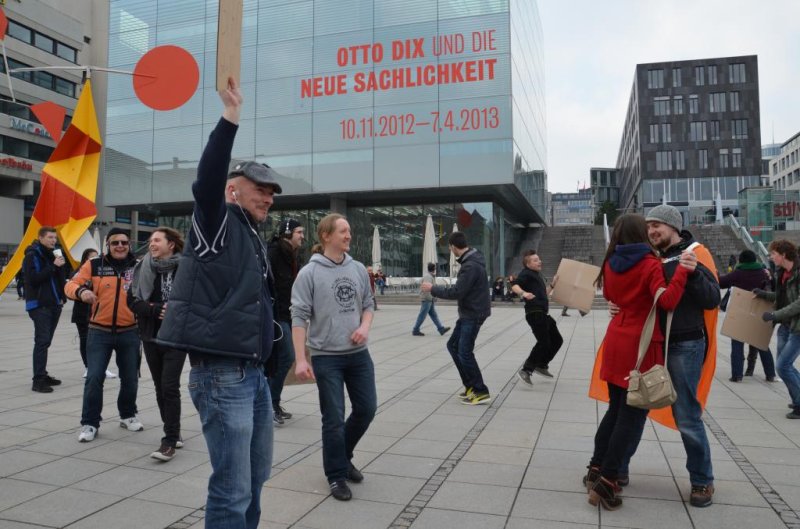Germans protest the Tanzverbot ban on dancing on religious holidays, including Good Friday. (Credit: Baden-Württemberg Pirate Party)
The decades old "Tanzverbot," or dance ban, applies to all clubs, discos and other forms of organized dancing. The Tanzverbot was first established by the church and was later adopted by many city governments starting in the Middle Ages. Now each of Germany's 16 states enforce the bans on several religious holidays, issuing fines from $6.50 to $650.
At a rally in the center of Frankfurt on Thursday, a couple dozen protesters gathered to call for an end to the ban. The rally's slogan: "I'll let you pray — you let me dance."
The Tanzverbot "severely limits the rights of those who are either atheists or who believe in other religions," Horst Weintraut, a member of the Pirate Party, told the Wall Street Journal. "When someone is dancing Friday evening in a club in the basement, that doesn't disturb any Christians who are praying or doing something in the church during the day."
"They can dance on 364 days a year," said Lars Witteck, the district president of the town of Giessen. "We cannot just forget our history. We have certain types of laws that show the respect to our tradition."
The Giessen Regional Commission, led by Mr. Witteck, prohibited the planned demonstrations on Good Friday last year. "For many people, this is the highest sacred day of the year," he said.
The Giessen branch of the antiestablishment Pirate Party posted a website with the slogan "Dance against the Tanzverbot—Alone instead of together." They also posted sign for dancers to print and carry in case police try to enforce the ban on organized dancing or demonstrations. The sign reads: "Safety warning: I'm here alone!"
"When only 30% of the people belong to a church in a given city, then religious traditions face some backlash," said Wolfgang Kaschuba, director of the Institute for European Ethnology at Humboldt University in Berlin.







